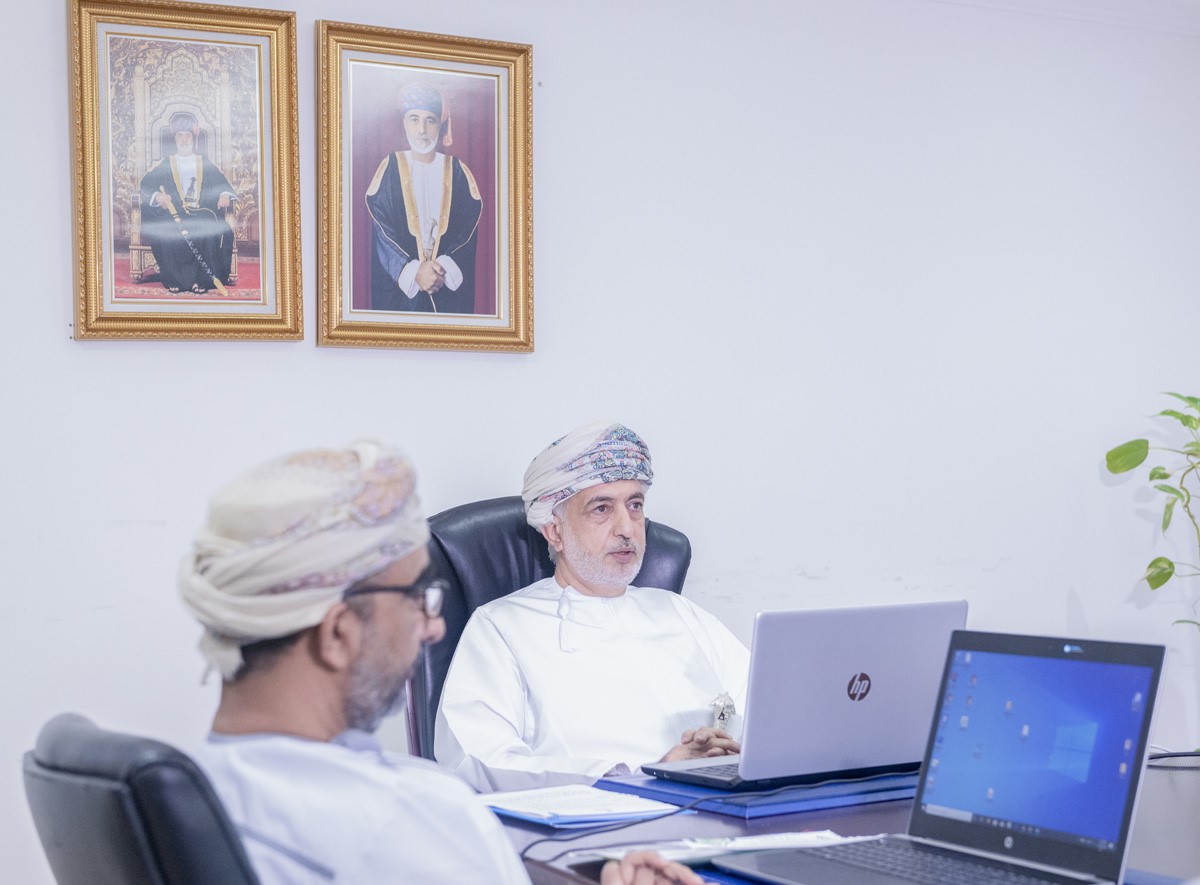

Muscat: Shaikh Mohammed bin Said al Kalbani, Minister of Social Development, praised the Directives of His Majesty the Sultan regarding providing health care to all citizens and residents without discrimination during the outbreak of COVID-19, as health services were available in various health centers and hospitals for everyone in the Sultanate. Many medical examination centers were also opened in various governorates to receive COVID-19 cases with no exception.
The Social Development Minister made this statement during the Sultanate’s virtual participation in the emergency summit of the Council of Arab Social Affairs Ministers on Sunday.
"Since the beginning of the year, the Sultanate has followed the developments of the pandemic and dealt with it with caution. A Supreme Committee was formed to study the mechanism to deal with the developments resulting from the spread of this virus, in light of the emerging health data and indicators issued by the WHO.
Many decisions were taken to ensure the highest levels of social protection, including, operation and readiness of 69 centers for institutional isolation in the governorates of the Sultanate, besides 32 similar centers on hold," the minister stated in his speech.
“To contain the outbreak of the epidemic, all social and religious activities, programmes and events that require gatherings of all kinds have been suspended. Places of worship, as well as higher education institutions, schools, rehabilitation centers for children with disabilities, and nurseries closed.
At the government level, work has been carried out remotely. The number of employees reduced to the lowest. The same is the case with the private sector. Working hours in the private have been reduced from the beginning of June.
Maternal and child health services and vaccinations, however, continued without interruption."
Al Kalbani talked about the efforts to create awareness on the necessity of social distancing through mainstream media and social outreach methods, taking into consideration the disabled people and even those who use sign language.
He mentioned that free lines for health and psychological counseling as well as for communication with isolated cases and their families were introduced. Efforts were also made for direct communication to follow up and educate individuals or families suspected of being infected to provide them health and psychological instructions on how to deal with the pandemic.
Besides, voluntary initiatives and contributions of the private and civil sectors were encouraged.
In his speech, the minister praised the great role of Omani women during the pandemic, as they provided services and support, whether at the institutional level or fieldwork, as well as voluntary activities in cooperation with the relief and shelter sector. He also talked about Omani women’s prominent role in the medical response sector, and community participation reflected in leading social development committees.
He said "many initiatives from civil societies, charitable institutions, and community members were organised to help people get their needs in the isolated areas. Aids also reached private-sector workers who were affected because of business suspension. The number of volunteers (males and females) who work to provide field support, whether delivery of relief materials or participating in field and administrative work and other aspects, reached more than 5,000 volunteers. These teams have worked to provide and deliver medications for the elderly and chronic patients to their homes to their burden and risks of visiting hospitals.
Concerning the Sultanate’s dealing with the economic effects of this pandemic, the Minister pointed out that the Royal Directives of His Majesty Sultan Haitham bin Tarik on adopting an emergency loan program without interest came to help the groups most affected like entrepreneurs, especially those holding a card of small and medium-sized enterprises (Riyada), the self-employed, as well as beneficiaries of the Oman Development Bank, and Raffd Fund loans following the controls and procedures specified by the Supreme Committee.
The Central Bank also took many measures in the field of social protection by directing banks operating in the Sultanate to postpone the repayment of bank loans and various financing loans without interest or additional fees.
The meeting approved several decisions, such as the exchange of experiences in the field of plans to mitigate the effects of the pandemic on the elderly, persons with disabilities, women, and children. It also called for updating the methodology and framework for preparing the second Arab report on multidimensional poverty to take into consideration the effects of this pandemic, in cooperation with partners.
Oman Observer is now on the WhatsApp channel. Click here



